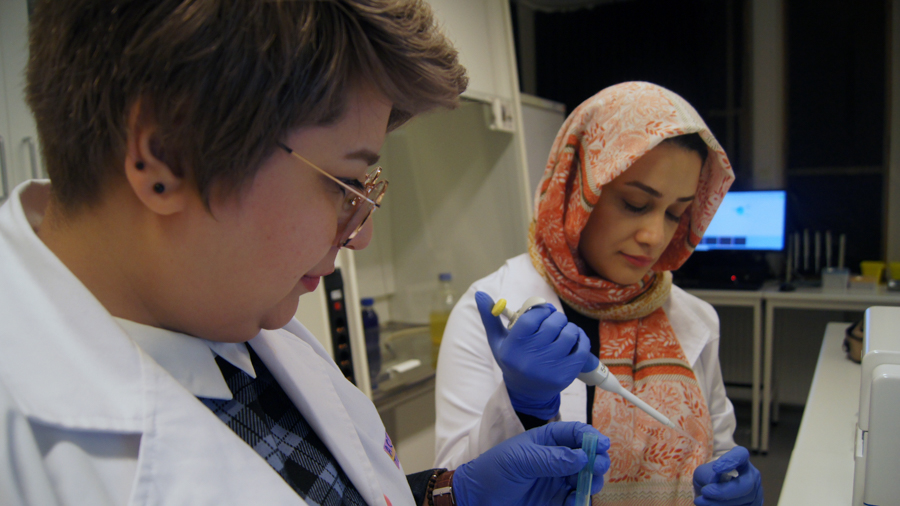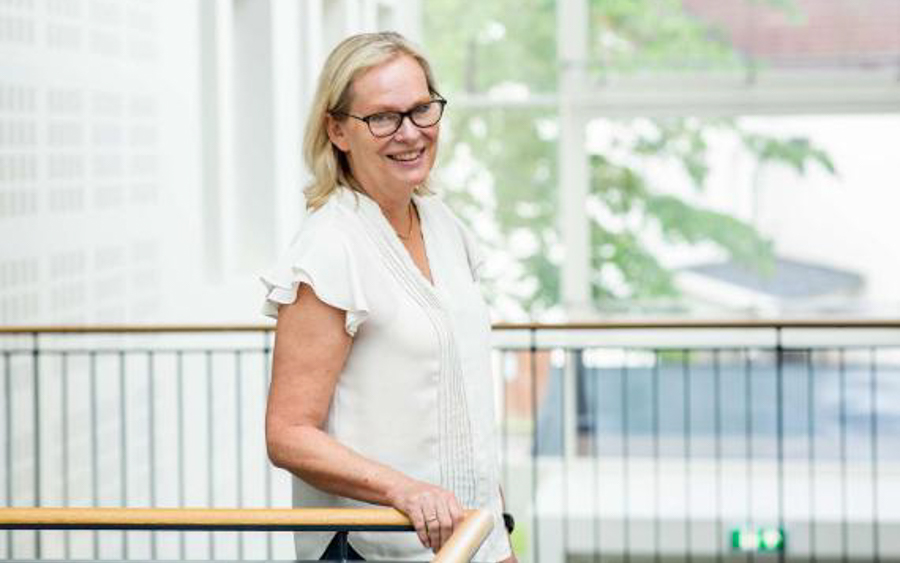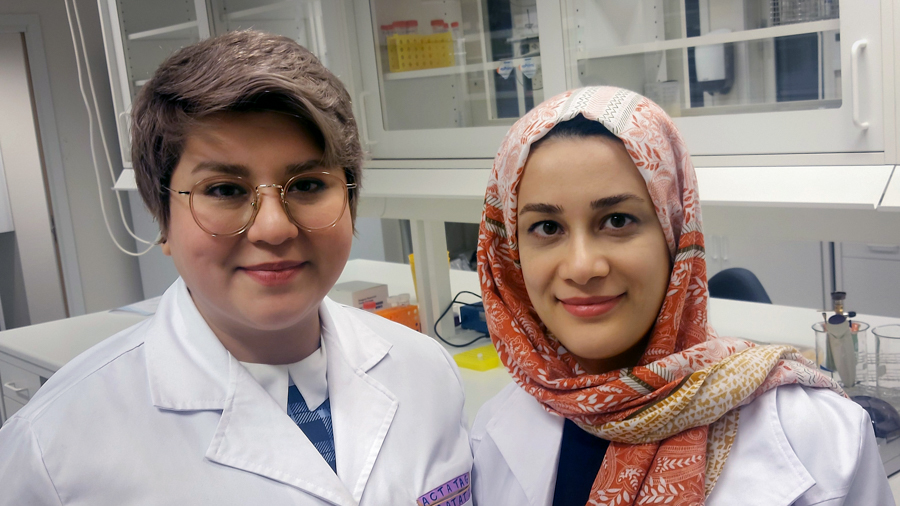Sudi Rouzbehani and Tahereh Ghanbarikeshteli had both studied at Iranian universities before applying for a master's degree in biotechnology at INN University. In the autumn of 2021, they came to Hamar to start their master's education, with clear expectations for the academic field and perhaps slightly less clear expectations for the city they moved to.
– I didn't know anything about Hamar, but I was fascinated both by what I had read about nature and the quality of life in Scandinavia, says Sudi.
– I wanted to see the northern lights, and I got to see them! I had heard that Norwegians are tolerant, which is important to me as a hijab wearer. And the education is free. I am very happy to be here, says Tahereh.
Practical student everyday
But it was primarily the academics that drew them to master's studies at INN University.
Sudi tells about an everyday life where they spend a lot of time in the laboratory. Biotechnology is the practical side of biology, she says.

Their master's projects are linked to a large research project run by the Department of Biotechnology on fertility among breeding animals – Zygote. The budget is NOK 60 million and INN University collaborates with several academic institutions and large companies on the six-year project.
The two students will develop methods that can be used in a broader perspective in this project and in other biotechnological research.
– It's fun when you see the results. What we find out in our studies is used by the companies involved in the project. Biotechnology is about things you can see and feel, I think that makes it interesting, says Sudi.
Tahereh's project is aimed at reducing the risk of the breeding material being destroyed during storage.
– It is risky to store and transport fresh semen and the aim is to improve the methods. It is exciting to be part of a large project, she says.
Collaboration with the industry opens doors
There are now four master's students associated with this research project, and there will be more. For INN University, this is important in several ways.
– The collaboration with business life opens up many opportunities for us. The students gain valuable learning with real material and get to work closely with academic staff. At the same time, their work contributes important knowledge to the project, says professor and project leader Elisabeth Kommisrud.

We have regular meetings with our business partners and they are very interested in Sudi's and Tahereh's projects. At the Department of Biotechnology, we aim for our research to quickly be applied in society, and this project is an example of that."
Future prospects
Sudi and Tahereh have little by little started to learn Norwegian and both envision a possible future in this country, after their master's education. The job opportunities in biotechnology in their home country are not that good.
Both are looking at the possibility of taking a doctorate and possibly starting to work here in Norway, where they believe the job opportunities are better.
The cold and snowy winter up here in the north has not frightened them.
– Winter here has its own beauty. And I'm a bit used to snow, as I come from a part of Iran where it can be cold in the winter, says Sudi.
Tahereh doesn't quite agree.
– The cold can be a nuisance. But what I really appreciate here is the silence. I really like that.

Facts about the project "Zygote – increased research capacity in applied biotechnology and sustainable breeding for the Inland region"
- A six-year research project led by INN University.
- Budget of over NOK 60 million. Funded by the Research Council, Innlandet County Council and others.
- The main goal is to create a robust, internationally competitive research and knowledge environment within sustainable breeding and applied biotechnology in the Inland region to give the regional business community access to increased expertise and research capacity.
- Collaborative partners: Geno, Norsvin, SpermVital, Klosser Innovation, NCE Heidner Biocluster, Innlandet County Municipality, Oslo University Hospital, OsloMet, SimulaMet, SINTEF and the Swedish University of Agricultural Sciences.
Useful links
- Master in Applied and Biotechnology and Biomedical Sciences
- PhD in Applied Ecology and Biotechnology
This article was translated from Norwegian by Noorit Larsen.



